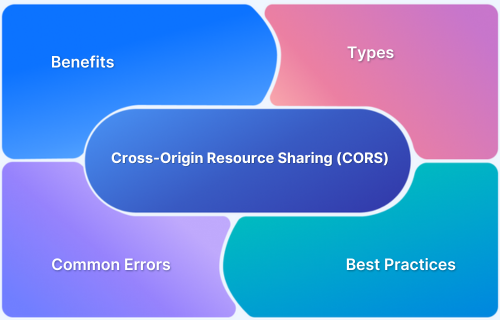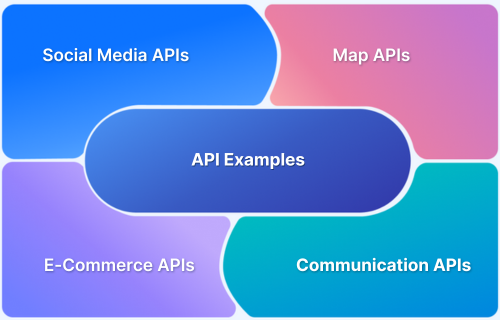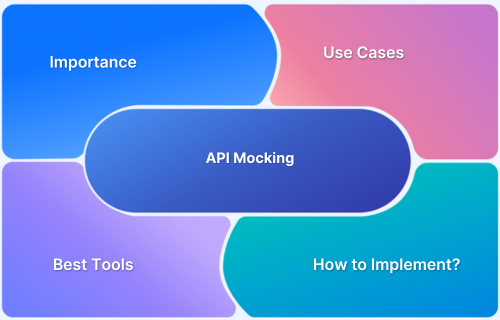Fiddler has long been a go-to tool for developers and testers to capture, inspect, and debug HTTP(S) traffic. While it remains powerful, many professionals now look for alternatives that are lighter, cross-platform, open-source, or tailored for modern workflows.
Overview
Fiddler is a web debugging proxy that helps developers capture, inspect, and modify HTTP(S) traffic between a computer and the internet. It’s widely used for API testing, performance monitoring, and troubleshooting web applications.
Quick Overview of Fiddler Alternatives
- Requestly: A lightweight extension and desktop app that allows request redirection, header modification, script injection, and team collaboration.
- HTTP Toolkit: A modern, open-source proxy that supports HTTPS interception, request/response mocking, and built-in API documentation across platforms.
- Charles Proxy: A cross-platform debugging proxy offering SSL proxying, bandwidth throttling, breakpoints, and mobile app debugging support.
- Proxyman: A macOS-native app with an intuitive UI designed for developers who need seamless HTTP/HTTPS traffic inspection and modification.
- Wireshark: A robust open-source packet analyzer that provides deep protocol-level insights, ideal for advanced network debugging.
- Burp Suite: A security-focused web proxy widely used for penetration testing, with advanced interception, request manipulation, and scanning tools.
- HttpWatch: A browser-integrated debugger for Chrome and Edge that supports HTTP/2 and HTTP/3 with detailed session analysis.
- mitmproxy: A command-line and scriptable proxy that enables interactive HTTPS interception, replay, and traffic manipulation.
- Firecamp: An API testing workspace that combines debugging features with support for REST, GraphQL, WebSocket, and team collaboration.
- Insomnia: A developer-friendly API client that simplifies debugging, environment management, and request mocking for modern workflows.
Whether you’re debugging APIs, analyzing network traffic, or simulating requests, the right tool can make a big difference in speed and efficiency. This article explores some of the best Fiddler alternatives, ranging from open-source proxies to advanced debugging suites, so you can choose the one that fits your needs.
Top 10 Fiddler Alternatives
While Fiddler is powerful, developers often seek alternatives for cross-platform support, lighter setups, modern features, or better team collaboration.
Each of the following tools brings unique strengths to debugging, testing, and traffic inspection. Here’s a closer look at the best options available.
1. Requestly
Requestly by BrowserStack is a lightweight tool available as a browser extension and desktop app that makes intercepting and modifying traffic effortless. It offers features like request redirection, header modification, script injection, and mock APIs. Teams use it for collaborative debugging, sharing sessions, and testing GraphQL or REST endpoints efficiently.
Pros:
- Browser-based and desktop support for flexibility
- Team collaboration with rule sharing and mock APIs
- Intuitive interface suitable for non-technical users
2. HTTP Toolkit
A modern, open-source debugging tool built to capture, inspect, and mock HTTP(S) traffic. It provides targeted interception, automated HTTPS setup, and built-in API documentation. Developers can rewrite requests, mock responses, and even export snippets into code for easy integration. Its clean UI and cross-platform support make it a favorite among web and API developers.
Pros:
- Open-source and cross-platform (Windows, macOS, Linux)
- Advanced request/response mocking and rewriting
- Easy setup with automatic HTTPS interception
Cons:
- Limited community compared to older tools like Fiddler
- Some advanced features require scripting knowledge
- Still evolving, fewer plugins than commercial tools
3. Charles Proxy
A long-established tool trusted by developers for debugging HTTP/HTTPS traffic. It runs on Windows, macOS, and Linux, providing SSL proxying, bandwidth throttling, and breakpoint debugging. Charles also supports mobile device debugging, making it a versatile choice for developers testing apps across multiple platforms.
Pros:
- Reliable, mature tool with strong community support
- Bandwidth throttling helps test performance under constraints
- Works well for debugging mobile applications
Cons:
- Paid tool with a trial period only
- Java-based, can feel slower than native apps
- UI may seem dated compared to modern tools
4. Proxyman
Designed specifically for macOS, this tool offers a polished and native experience for inspecting and modifying HTTP/HTTPS traffic. Developers love it for its user-friendly design and fast performance. Proxyman also provides SSL proxying, domain filtering, and breakpoints, making it a natural choice for Apple ecosystem developers.
Pros:
- Native macOS design with excellent performance
- User-friendly interface for easy debugging
- Supports SSL proxying and domain filtering
Cons:
- macOS-only, not available for Windows/Linux users
- Paid tool with limited free usage
- Lacks deep packet inspection like Wireshark
5. Wireshark
A legendary open-source packet analyzer that goes beyond just HTTP debugging. It allows developers and network engineers to inspect traffic at the protocol level, covering TCP, UDP, TLS, and more. While it has a steeper learning curve, it’s invaluable for detailed troubleshooting and performance analysis.
Pros:
- Completely free and open-source
- Deep protocol-level inspection beyond HTTP
- Widely used with extensive documentation and community support
Cons:
- Complex interface with steep learning curve
- Not designed for quick HTTP request/response manipulation
- Can feel overwhelming for simple API debugging tasks
6. Burp Suite
A security-focused web proxy widely used by penetration testers and ethical hackers. It allows users to intercept, manipulate, and replay requests, alongside powerful automated scanning features. Burp Suite is highly extensible with a plugin ecosystem, making it a go-to for anyone focused on security testing.
Pros:
- Industry standard for web security testing
- Advanced request manipulation and automated scans
- Highly extensible with community and pro plugins
Cons:
- Paid version required for full functionality
- Steeper learning curve for non-security users
- Overkill for simple debugging tasks
7. HttpWatch
A browser-integrated debugger for Chrome and Edge, HttpWatch provides in-depth visibility into network requests. It supports modern protocols like HTTP/2 and HTTP/3, logs console activity, and groups requests for better analysis. Its integration with browsers makes it convenient for front-end developers.
Pros:
- Seamless browser integration
- Supports HTTP/2 and HTTP/3 protocols
- Detailed session recording and export options
Cons:
- Windows-only, no macOS/Linux support
- Paid tool with limited free features
- Less flexible than standalone proxies like Fiddler
Read More: What is API Testing? (with Examples)
8. mitmproxy
An open-source, command-line-based interactive proxy designed for developers who prefer scripting and automation. It supports HTTPS interception, traffic replay, and custom modifications through Python scripts. While it has a CLI, it also offers a web interface for those who prefer visuals.
Pros:
- Free, open-source, and scriptable in Python
- Strong automation and replay capabilities
- CLI + Web interface available
Cons:
- CLI-first approach may deter non-technical users
- Less polished UI compared to tools like Proxyman
- Requires Python knowledge for advanced use
9. Firecamp
A cross-platform workspace designed for API developers, combining debugging with testing capabilities. It supports REST, GraphQL, WebSocket, and even server-sent events. With collaboration features, Firecamp works well for teams looking to streamline debugging and API testing in one platform.
Pros:
- Supports multiple protocols: REST, GraphQL, WebSocket
- Collaboration features for teams
- Cross-platform with clean UI
Cons:
- Not as mature as Fiddler or Charles
- Fewer low-level debugging features
- Collaboration features locked in premium plans
10. Insomnia
A developer-friendly API client that doubles as a debugging tool. It simplifies working with REST and GraphQL, provides environment management, and supports request mocking. While it’s not a direct proxy like Fiddler, it’s excellent for developers testing APIs during development.
Pros:
- Open-source and easy to use
- Strong support for REST and GraphQL APIs
- Request mocking and environment variables built-in
Cons:
- Not designed for low-level traffic interception
- Limited compared to proxy tools like Charles or Proxyman
- Team features behind paid plans
Read More: Top 20 API Testing Tools
Fiddler Alternatives: Quick Comparison
To help you choose faster, here’s a side-by-side comparison of the top alternatives, covering platforms, pricing, and their best use cases.
| Tool | Platform Support | Pricing Model | Key Features |
|---|---|---|---|
| Requestly | Windows, macOS, Linux | Free & Paid | HTTPS interception, request rewrite, mocking |
| HTTP Toolkit | Browser (Chrome, Firefox, Edge), Desktop (Win/Mac) | Free & Paid | Redirects, header modification, mock APIs |
| Charles Proxy | Windows, macOS, Linux | Paid (Trial available) | SSL proxying, throttling, breakpoints |
| Proxyman | macOS | Paid (Free trial) | Native UI, SSL proxy, domain filtering |
| Wireshark | Windows, macOS, Linux | Free (Open-source) | Packet capture, protocol decoding, TLS debug |
| Burp Suite | Windows, macOS, Linux | Free & Paid | Request manipulation, automated scans, plugins |
| HttpWatch | Windows (Chrome, Edge) | Paid (Limited free) | HTTP/2 & HTTP/3 support, session logging |
| mitmproxy | Windows, macOS, Linux | Free (Open-source) | Interactive proxy, replay, Python scripting |
| Firecamp | Windows, macOS, Linux | Free & Paid | REST, GraphQL, WebSocket, collaborative API workspace |
| Insomnia | Windows, macOS, Linux | Free & Paid | REST & GraphQL, mocking, environment management |
Choosing the Right Fit
Selecting the right debugging or API testing platform depends on your development environment and workflow. Here are a few factors to keep in mind:
- Platform Compatibility: Ensure the tool supports your operating system (Windows, macOS, Linux) and integrates smoothly with your development stack.
- Use Case Alignment: Match the platform’s strengths with your goals, whether it’s API debugging, traffic monitoring, security testing, or team collaboration.
- Ease of Use: Look for a balance between powerful features and an intuitive interface that fits into your daily workflow.
- Collaboration Needs: If you work in a team, consider platforms that allow easy sharing of sessions, rules, or test cases.
- Budget & Licensing: Decide whether you need a free, open-source solution or if premium features justify the investment.
Read More: Top 10 Python REST API Frameworks
Why Choose Requestly HTTP Interceptor?
Requestly HTTP Interceptor is a lightweight debugging and testing tool that helps developers capture, inspect, and modify HTTP(S) traffic. Unlike heavy proxy-based setups, it works seamlessly as a browser extension or desktop app, making it easy to integrate into everyday development workflows. It offers:
- Real-time interception of HTTP(S) requests and responses
- Rule-based modifications such as URL redirects, header rewrites, and script injection
- Mock API support to simulate responses when backend services are unavailable
- Collaboration features for sharing rules, sessions, and debugging setups within teams
- Support for modern workflows, including GraphQL and API testing
Features:
- Simplifies traffic inspection without the overhead of complex proxy configurations
- Saves time during debugging by allowing quick adjustments through rules
- Ideal for both individual developers and QA teams who need speed and flexibility
Conclusion
Fiddler has been a trusted tool for debugging and monitoring HTTP(S) traffic, but today’s developers and testers have a wide range of alternatives tailored to modern workflows. From open-source solutions like Wireshark and mitmproxy to cross-platform tools like HTTP Toolkit and collaboration-friendly options such as Requestly, each tool brings unique strengths.
The right choice depends on your goals—whether it’s deep packet analysis, API testing, security auditing, or team collaboration. Exploring these alternatives ensures you’ll find a tool that not only matches Fiddler’s capabilities but also fits seamlessly into your workflow.







